Could Covid-19 restrictions last beyond June 21?
The fourth step of the Government road map is supposed to see the removal of all legal limits on social contact.

Plans to delay or scale down the total easing of restrictions later this month are reportedly being considered.
Here, the PA news agency takes a look at some of the key issues and which measures may stay in place in England past the target date of June 21.
– What is the current plan for that date?
The fourth step of the Government road map is supposed to see the removal of all legal limits on social contact.
– And is that not going to happen?
Amid reports of delays and changes to the plan, the Government has insisted “no decision” had been made on whether to ease all coronavirus restrictions on that date.
A spokeswoman on Saturday said: “As the Prime Minister has set out, we can see nothing in the data at the moment to suggest that we need to deviate from the road map.
“We continue to look at the data and the latest scientific evidence and no decision on Step 4 has yet been made.”
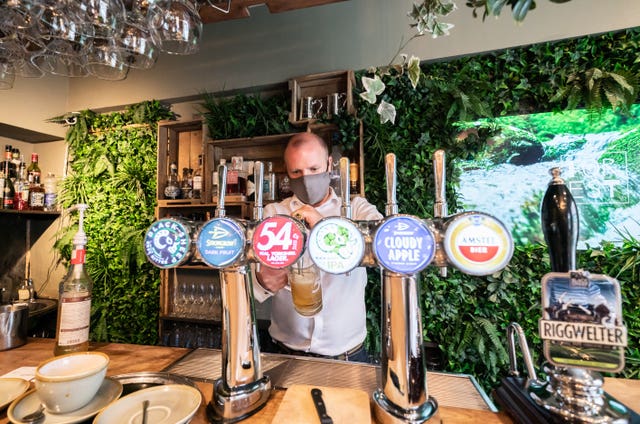
– What do the reports say?
According to the Telegraph, there could be a two-week delay to the final stage of Boris Johnson’s road map.
The i newspaper said revised plans would likely see the Government continuing with the guidance to work from home if possible, and could also see the policy of mask wearing and social distancing on public transport continue.
The newspaper also said social distancing in bars and restaurants is likely to remain, along with limits on audiences in theatres and cinemas.
– When will we find out more?
A review of what measures will be relaxed on June 21 was due by the end of May but has been pushed back due to the spread of the coronavirus variant first identified in India, also known as the Delta variant.
Downing Street has said plans for unlocking will be outlined on June 14.
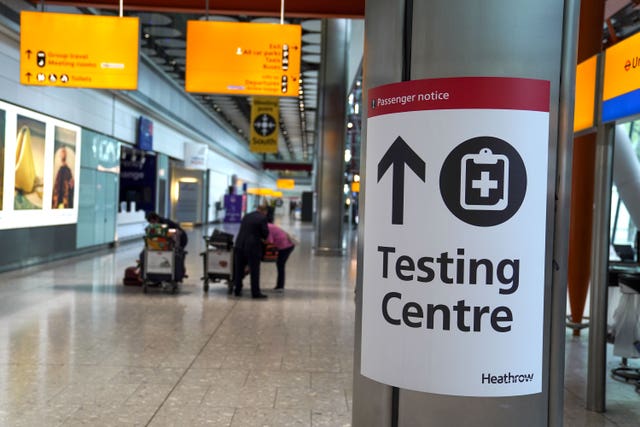
– What do scientists say?
There are various opinions but it is generally accepted there is a balance of risks.
Dr Mike Tildesley, a member of the Scientific Pandemic Influenza Group on Modelling (Spi-M) Government advisory panel, said the Government has a “difficult call” to make about easing restrictions.
He told Times Radio that with a delay “of course you’ll get a smaller subsequent wave”, but added: “Of course, if you delay that we know that negatively impacts businesses, people’s livelihoods, and so forth.”
Professor Stephen Reicher said he is confident there is enough evidence to say one of the Government’s four key tests – the one on the risk posed by variants – for its road map out of lockdown has not been met.
The member of the Scientific Pandemic Insights Group on Behaviours (Spi-B) told the PA news agency: “I think by the Government’s own criteria it’s quite clear that it would be foolish to proceed on the data that we’ve got at the moment. The risk would be very great indeed.
“And of course it’s a balance of risks but I think it would be a major risk to go further in opening up.”
Epidemiologist Dr Adam Kucharski said the UK faced a different battle in the face of the dominance of the Indian variant, telling the BBC Radio 4’s Today programme it could be “hard to justify” easing further restrictions this month.
– What does the current data say?
On Friday the UK recorded its highest number of new confirmed coronavirus cases since late March.
A further 6,238 lab-confirmed cases of coronavirus were recorded in the UK as of 9am on Friday, which is the highest single-day figure since March 25, Government figures showed.
Meanwhile, figures from the Office for National Statistics (ONS) suggest the number of people who had the virus in England has increased by around three quarters in a week.
Public Health England has said the coronavirus variant that originated in India is now believed to be dominant in the UK.
– What is happening in hospitals?
Analysis by the PA news agency shows the majority of major hospital trusts in England are continuing to average no Covid-19 admissions.
However, a handful of trusts in virus hotspots are showing a small rise in numbers.
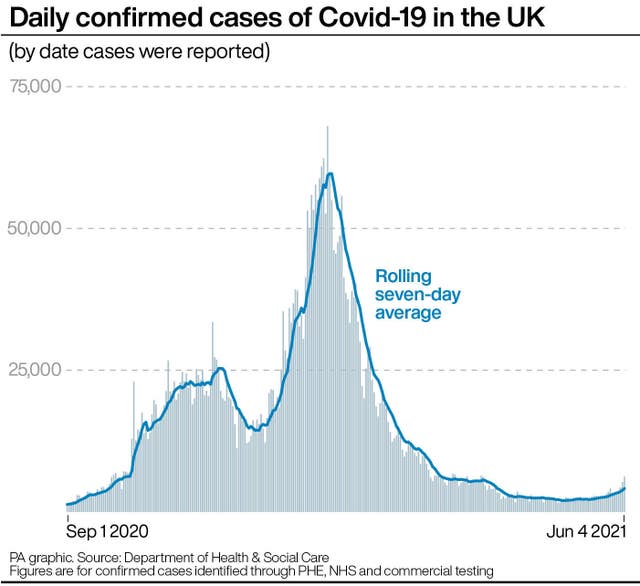
The chief executive of NHS Providers has said the number of people in hospital with the coronavirus variant first identified in India is increasing, but not significantly.
Chris Hopson told BBC Breakfast on Saturday the number of people in hospital in Bolton with Covid-19 peaked at 50, compared to 170 in November and 150 in January and February.
Mr Hopson said: “Infection rates have been increasing in a number of different places.
“We know that the hospitalisations are increasing, the rates of people coming into hospital in those areas are rising. But they are not rising very significantly.”
He added: “Areas that were at the front of this wave, areas like Bolton, what’s particularly interesting is that they have now got to the point where their community infections have started to decline.”
– Isn’t the vaccine rollout going really well?
Yes, it is. More than half of all adults in the UK have received a second dose, figures published on Thursday showed.
Three-quarters of adults had received a first dose by that point.
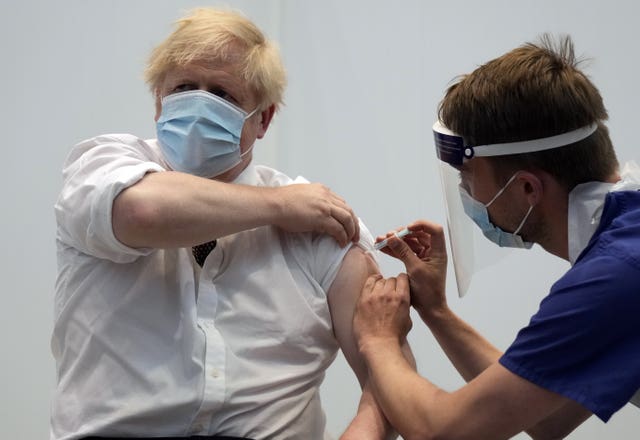
– So, what’s the problem?
Early evidence from Public Health England (PHE) published on Thursday suggests the now-dominant Delta variant of Covid-19 may lead to an increased risk of being admitted to hospital compared with the previously dominant Kent variant, known as Alpha.
Meanwhile, new laboratory data also published on Thursday suggested people who have received the Pfizer/BioNTech vaccine have fewer antibodies targeting the Indian variant – although real-world data is needed to confirm this.
Experts say that delivering second doses promptly and providing boosters to those with weakened immune systems will help keep hospital admissions low.
– How promptly are second doses being delivered?
It was announced in May that the 12-week gap between doses would be reduced to eight for over-50s who had yet to receive a second jab.
Second jabs for over-40s are also set to be accelerated to a similar timeframe, according to the Telegraph.
Professor Anthony Harnden, deputy chairman of the Joint Committee on Vaccination (JCVI), said no decision on reducing the gap between doses for the over-40s had been taken but was likely to be made “in the next few weeks”.
He said cutting the gap from 12 weeks to eight is a “trade-off between better short-term protection and better longer-term protection”.
He told BBC Breakfast: “We will look at vaccine supply in the under-50s and make a decision about whether we should bring that forward, based on the prevalence of the variant which is circulating at the moment.”
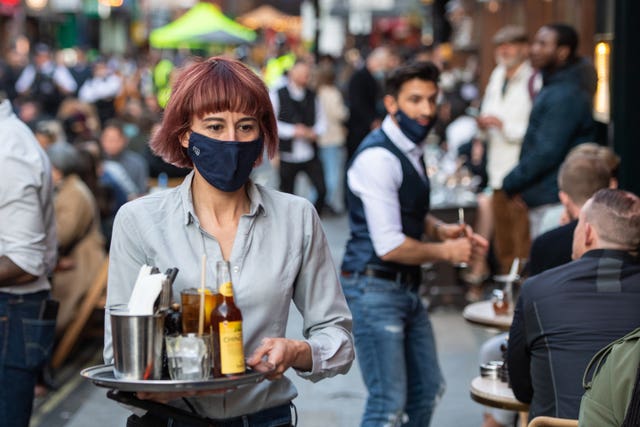
– What about those who feel June 21 should go ahead as planned?
Sacha Lord, night time economy adviser for Greater Manchester, said June 21 is a “make or break” date for many and vowed that he was “up for a fight” over the possible delay.
Kate Nicholls, chief executive of UKHospitality, said keeping social distancing would mean “June 21 is not freedom date at all” and said continued measures threaten “the long-term viability of businesses, jobs and the recovery”.





